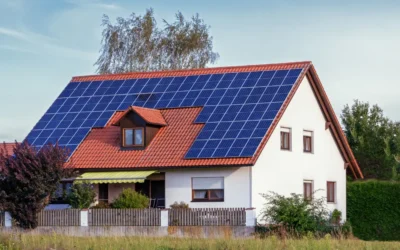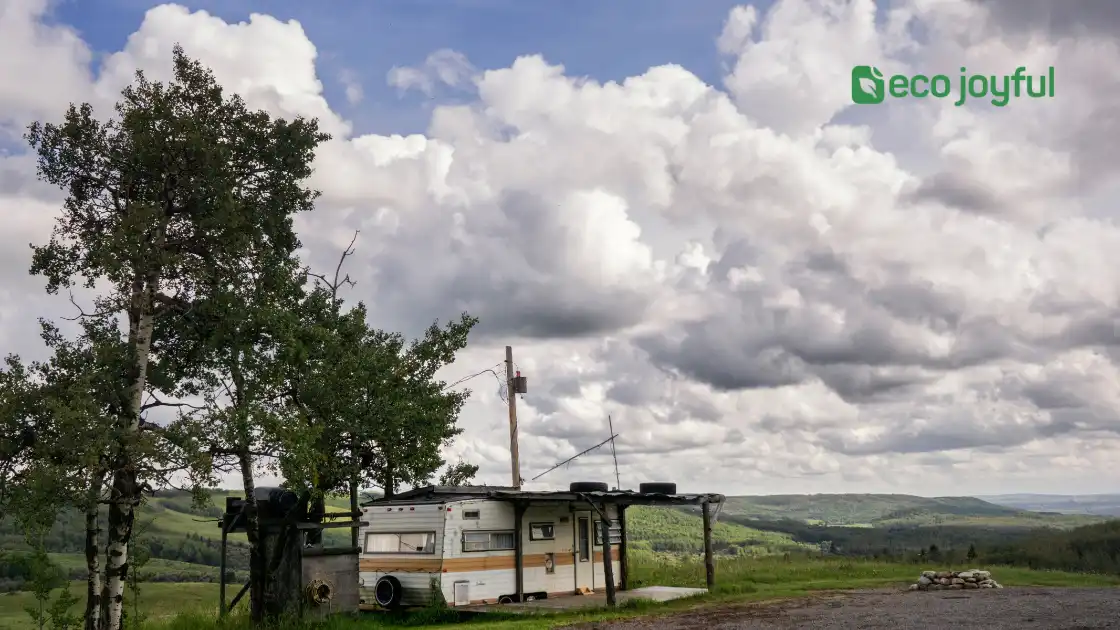To get internet living off the grid, you can use satellite internet or technologies like long-range Wi-Fi systems. In remote areas, satellite internet services provide coverage and connection options, while long-range Wi-Fi systems enable access to nearby internet sources.
Running a high-quality Wi-Fi connection can also be achieved with a combination of routers, antennas, and boosters.
Table of Contents
Challenges Of Getting Internet Off The Grid
Living off the grid offers a sense of freedom and independence, but staying connected to the digital world can pose its own challenges. Whether you’re in a remote location or dealing with limited infrastructure, there are several obstacles to overcome when it comes to getting internet off the grid. In this article, we’ll explore these challenges and provide some solutions to help you stay connected even in the most isolated spots.

1. Limited Infrastructure
The first challenge you might face when trying to get the internet off the grid is the limited infrastructure. Traditional internet service providers (ISPs) typically focus on densely populated areas, leaving rural and remote locations underserved. As a result, you may find that the necessary infrastructure, such as fiber-optic cables or cellular towers, is simply not available in your area.
To overcome this challenge, you can explore alternative options for internet connectivity. Satellite internet, for example, relies on orbiting satellites to provide internet access. While it may come with higher latency and cost, it can be a viable solution for those living in remote areas with limited infrastructure.
2. Remote Location Issues
Another challenge when getting internet off the grid is the remote location itself. If you’re situated in a secluded area surrounded by mountains or dense forests, it may interfere with the signal strength. These natural barriers can obstruct the transmission of internet signals, making it difficult to establish a reliable connection.
To mitigate this issue, you can make use of signal boosters and extenders. These devices amplify and extend the reach of Wi-Fi signals, helping you overcome physical obstacles and improve connectivity. Additionally, positioning your router and equipment in a central location can also optimize the signal distribution throughout your property.
3. Cost Considerations
Cost is a significant factor to consider when getting internet off the grid. Traditional ISPs often offer packages specifically tailored for urban areas, making them more affordable compared to options suitable for remote locations. Additionally, the installation and maintenance of specialized equipment required for off-grid connectivity can also add to the overall expenses.
To ensure a cost-effective solution, it’s important to research and compare different providers and plans that cater specifically to off-grid living. Look for flexible packages with affordable data plans and consider any additional equipment costs when budgeting. Investing in long-term solutions, such as solar-powered internet systems, can also help reduce ongoing expenses.
Overall, while getting internet off the grid can be challenging, it’s definitely not impossible. By exploring alternative connectivity options, considering signal amplification techniques, and finding cost-effective solutions, you can ensure a reliable and accessible internet connection no matter how remote your location.
Solutions For Get Internet Living off the Grid
Living off the grid doesn’t mean you have to sacrifice your access to the internet. In today’s connected world, there are several solutions available to ensure you can stay connected even in remote areas. Whether you prefer satellite internet, wireless options, or cellular data plans, you can find a solution that fits your needs. In this article, we’ll explore these options in more detail and help you choose the best one for your off-grid lifestyle.
Satellite Internet
If you’re living off the grid in a remote location with no access to traditional internet providers, satellite internet can be a game-changer. This technology allows you to connect to the internet through a satellite dish installed at your property. With satellite internet, you can enjoy decent internet speeds and reliable connectivity, even in areas where traditional options are unavailable.
While satellite internet offers the benefit of being available in remote areas, it does come with a few drawbacks. The latency can be higher compared to other options, which may affect activities like online gaming or video conferencing. Additionally, satellite internet plans often come with data usage limits, so it’s important to choose a plan that suits your internet requirements.
Wireless Internet Options
Wireless internet options, such as fixed wireless and mobile hotspots, provide a convenient solution for those living off the grid. Fixed wireless internet uses radio signals transmitted from a nearby base station to deliver internet service to your location. This option requires the installation of an antenna and is typically offered by local wireless internet service providers.
Mobile hotspots, on the other hand, allow you to connect to the internet using cellular data networks. These portable devices use a SIM card to access the internet and can be used anywhere within the provider’s coverage area. Mobile hotspots are a flexible choice for off-grid living as they can be easily moved around to find the best signal strength.
Cellular Data Plans
If you already have good cellular coverage in your off-grid location, utilizing a cellular data plan can be a reliable and cost-effective solution for internet connectivity. Most cellular providers offer data-only plans that allow you to use your smartphone or a dedicated device to access the internet using cellular networks.
When choosing a cellular data plan, consider your internet usage requirements and the coverage strength in your area. Keep in mind that while cellular data plans are convenient, they may have limitations on data usage and speed during peak hours.
Comparing The Options
| Option | Pros | Cons |
|---|---|---|
| Satellite internet | Available in remote areas, reliable connectivity | Higher latency, data usage limits |
| Wireless internet options | Convenient, flexible, no installation required | Dependent on local wireless providers, signal strength |
| Cellular data plans | Reliable, cost-effective, widespread coverage | Data usage limitations, speed may vary during peak hours |
When it comes to choosing the right option for internet connectivity while living off the grid, weigh the pros and cons of each solution. Consider factors such as location, internet usage, and budget. Ultimately, the decision will depend on what is available in your area and what best suits your needs. With the right choice, you can enjoy a seamless internet experience even in the most remote corners of the world.
Setting Up Internet Off The Grid
Living off the grid offers a unique sense of self-sufficiency, but it doesn’t mean you have to completely disconnect from the online world. With the right approach, you can still enjoy the benefits of an internet connection, even in remote areas where traditional internet service providers may not reach. In this section, we will guide you through the process of setting up internet off the grid, from assessing your needs to installation and setup.
Assessing Your Needs
Before diving into setting up internet off the grid, it’s crucial to assess your specific internet needs. Consider what you’ll be using the internet for – is it just for checking emails and basic browsing, or do you require a connection for work-related tasks, video streaming, or online gaming? Understanding your requirements will help you determine the necessary internet speed and data limits for your off-grid setup.
Evaluating Available Options
When it comes to internet off the grid, there are several options worth considering. Depending on your location, satellite internet, cellular data plans, or wireless point-to-point connections may be viable solutions. Each option has its pros and cons, so it’s essential to evaluate which one aligns best with your needs and budget.
Installation And Setup
Once you’ve selected the most suitable internet option, it’s time to proceed with the installation and setup process. Installing internet off the grid typically involves mounting the necessary equipment, such as satellite dishes or wireless receivers, and connecting them to your computer or router. Make sure to follow the manufacturer’s instructions carefully or consider hiring a professional if needed.
To ensure your internet off the grid performs optimally, proper positioning of equipment is vital. Satellite dishes must have a clear line of sight to the sky, free from obstructions such as trees or buildings that can interfere with the signal. Similarly, wireless point-to-point connections require a clear line of sight between transmitter and receiver to achieve reliable connectivity.
Once everything is set up, test your internet connection to verify the speed and reliability. Ensure all usernames, passwords, and network settings are correctly configured to avoid any interruption or security issues. Regularly monitor your data usage to stay within your limits, especially if you are using a limited data plan or have speed restrictions.
By meticulously assessing your needs, evaluating the available options, and following the proper installation and setup procedures, you’ll be well on your way to enjoying a reliable internet connection off the grid.
Making The Most Of Internet Off The Grid
Discover how to access the internet while living off the grid and make the most of your online experience. Gain insights and practical tips for staying connected even in remote locations.
Optimizing Data UsageIn order to maximize your internet usage while living off the grid, it’s important to optimize your data usage. Here are some practical tips to help you do just that:
Ensuring your privacy and security while living off the grid is essential. Here are some steps you can take to protect your online presence:
Living off the grid doesn’t mean you have to rely solely on traditional internet technologies. Explore these alternative options to enhance your online experience:
By exploring these alternative technologies, you can find the best solution for your off-grid internet needs.Living off the grid doesn’t mean sacrificing your internet access. By optimizing data usage, protecting your privacy and security, and exploring alternative technologies, you can make the most of your internet off the grid experience. So, go ahead and stay connected even in the most remote locations! |
Conclusion
Living off the grid is a rewarding lifestyle that offers freedom and self-sufficiency. By implementing the strategies discussed in this blog post, you can successfully achieve internet connectivity while enjoying the benefits of living off the grid. From setting up solar-powered internet solutions to utilizing satellite internet services, there are several options available to suit your needs.
Embrace the wonders of technology while staying true to your off-grid lifestyle. Start exploring the possibilities today!









